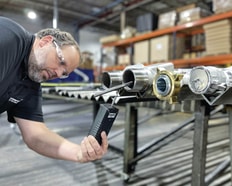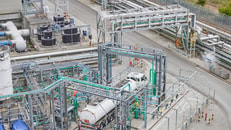Speed up electrification of industrial heat, urges UK Climate Change Committee
The UK must speed up electrification of industrial heat and undertake a rapid expansion of a low-carbon electricity system, according to the latest report from the Climate Change Committee, the UK government advisory body.
Its ‘Progress in reducing emissions’ report notes that more than half the energy used in the economy is wasted because of the inherent inefficiency of fossil fuels.
“Electrification could halve that waste. The transition to a predominantly home-grown energy supply system powering modern, efficient, electric technologies will reduce household bills, increase energy security, and improve air quality, as well as keeping the UK on the path to Net Zero,” it states.
... to continue reading you must be subscribed
























